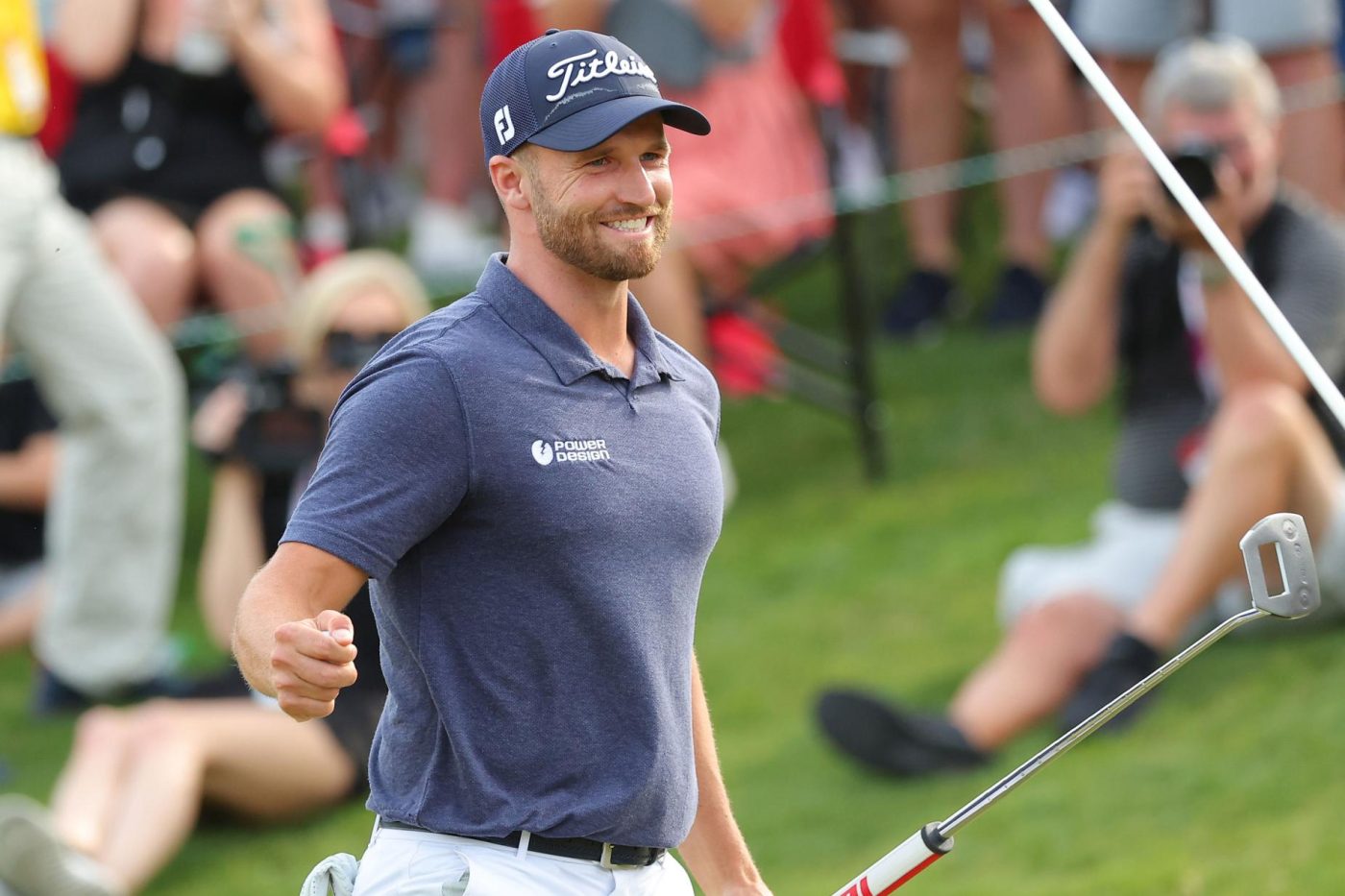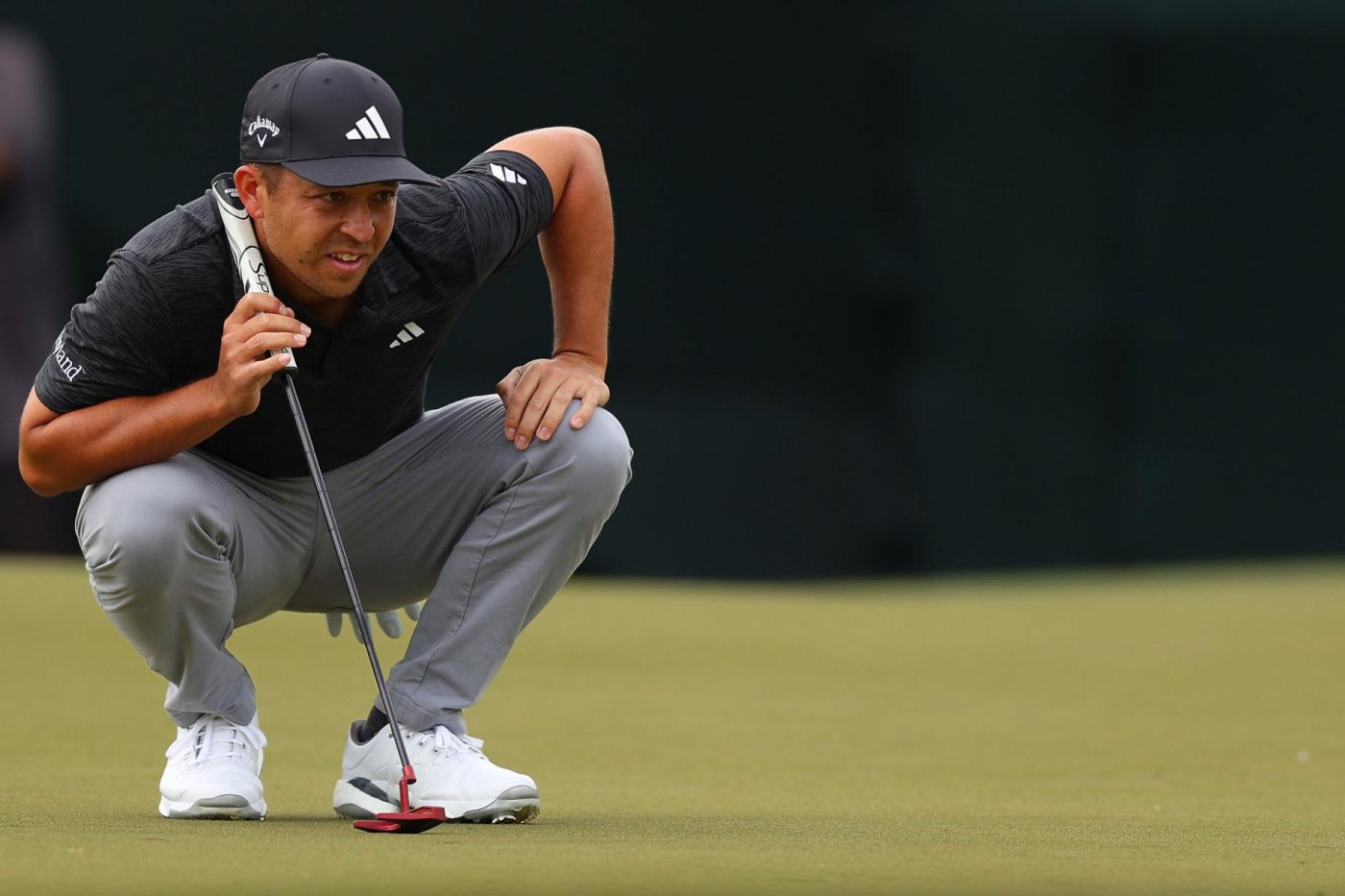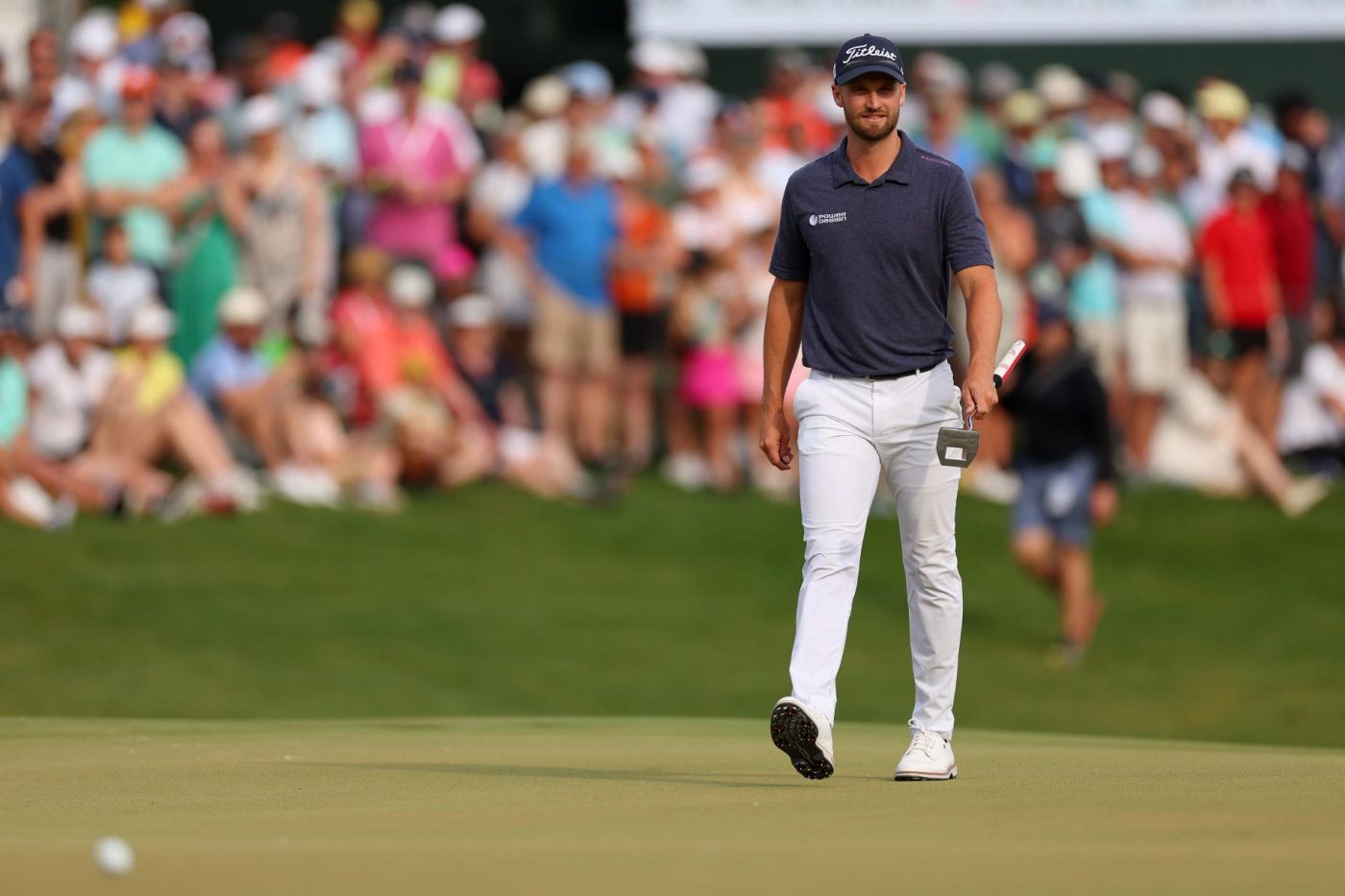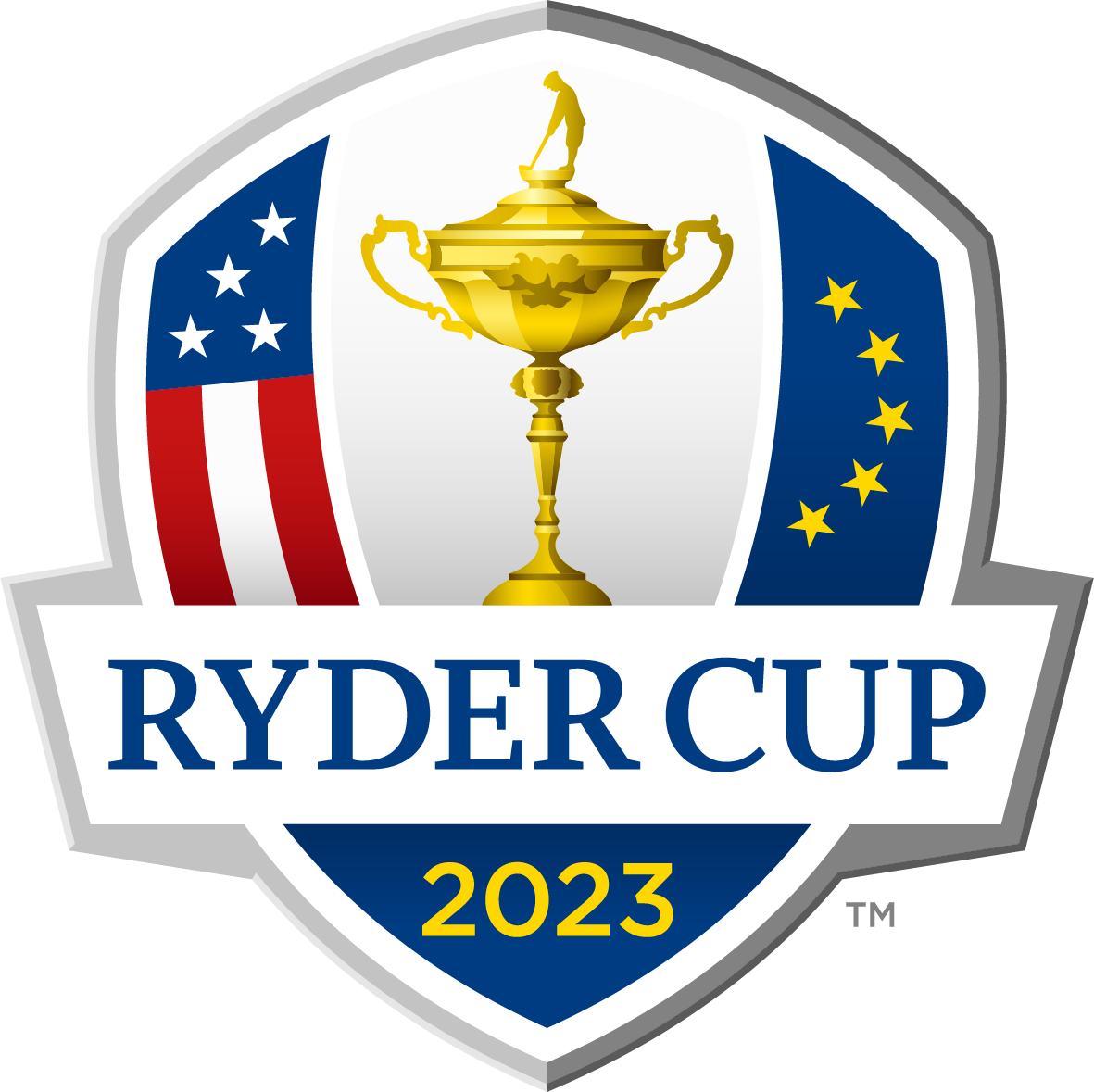
CHARLOTTE — There were signs all year that Wyndham Clark was on the verge of something special, but what he accomplished on a pleasant, slightly breezy Sunday at Quail Hollow—shooting a 68 to finish 19 under and crush the field at the Wells Fargo Championship for his first PGA Tour win—still feels in retrospect like a Double A baseball player called up to the big leagues who proceeds to hit four home runs off the league’s best pitcher in his first game.
Playing in an elevated event, against the world’s best golfers, Clark, 29, not only captured the trophy and the attendant $3.6 million prize (not bad for a guy whose previous biggest payday was $485,000), he did so in such dominating fashion that it felt more like a targeted demolition than a fluke. Only Xander Schauffele came close to interrupting America’s version of a long-awaited coronation, and even he faded into the distance by the back nine. As Rich Beem said to Colt Knost near the round’s end, as relayed on the CBS broadcast, “How is somebody 20 under par on this golf course?”
“I knew Xander was going to play well, but I also knew it was going to be tough,” Clark said, after making reference to his “squirrelly” start to Sunday. “My caddie kept preaching to me as we were warming up, he was like, Hey, get your mind wrapped around that it’s going to be challenging. It’s a lot windier today, it’s going to be tough pins. … So I kept reminding myself, hey, I’m in a position to win. … It’s one of the few times I felt like I’m really happy with myself.”
As for Beem’s question, the strokes-gained statistics for the week tell the practical side of the story: Clark was first in tee to green, first in approach and third in putting, which in a nutshell means that even Schauffele, trying to chase Clark down from two strokes behind, had no prayer. The lone moments of drama came very early on the front nine, when a nervy bogey from Clark the first hole and a missed green in regulation on the second (this is after a near perfect 17-for-18 in GIR in his masterful third-round 63) briefly gave oxygen to the theory that he wasn’t ready for the stage.
Schauffele even grabbed the lead with a birdie on seven, but when Clark struck back with a wedge to three feet for a birdie on 8, it was clear he had regained control. From there, his round took on a metronomic rhythm: par on 9, birdie on 10, par on 11, birdie on 12, par on 13, birdie on 14. Then he broke the pattern to make a second consecutive birdie on 15 after analyzing his nine-footer to death, cracking the 20 under threshold. With nobody else in sight, Schauffele made a game effort to provide a token opposition, birdieing the 14th and 15th holes, but the chasm between him and the man on top was too great.

“I didn’t do what I needed to do at important times,” said Schauffele, who put the blame on his putter after posting a closing 70. “When you’re trying to win on Sunday, you need to put the screws down and put some pressure on the guys leading, and I didn’t do that.”
(When Schauffele was asked if Clark’s win was a good reason for not reducing fields next year, he managed to fight through his disappointment to make a joke: “I mean, I wouldn’t have minded because I would have won the tournament by three if he wasn’t here, so you might be asking the wrong person.”)
Far below Clark, Harris English and Tyrrell Hatton tied for third place at 12 under, and a shot beneath them, Tommy Fleetwood and Adam Scott tied for fifth. Max Homa was among a crowd of six at nine under, while a resurgent Rickie Fowler finished T-14 at eight under.
As the sky grew overcast, Clark navigated Quail Hollow’s difficult “Green Mile” closing stretch, benefiting from good fortune on 16 when a slice-adjacent drive bounced off a tree and back into a safe bunker, and finishing with a safe bogey on 18 to slip back to 19 under. Striding down the last fairway, Clark smiled, secure in the knowledge that the hard work was over, and he had secured the greatest triumph of his career.
Clark’s journey in golf to date has been one of significant struggles. In 2013, shortly after starting his college golf career at Oklahoma State, his mother, Lisa, died at age 55 from breast cancer. It sent Wyndham into a spiral that led him to transfer to the University of Oregon and coach Casey Martin, but not before he contemplated quitting the game entirely.

“There’s many times when I stormed off the golf course in qualifying or in tournaments and just drove as fast as I could, I didn’t know where I was going,” Clark said. “Just the pressure of golf and then not having my mom there and someone that I could call was really tough for me. And then professionally I’ve had multiple moments like that where you just, you miss multiple cuts in a row or you feel like your game is good and you’re not getting much out of it and you just contemplate doing it.”
Clark healed as a person and recovered his game at Oregon, but despite making the PGA Tour in 2018, he struggled to win and often failed to deliver under pressure. His closest call came at the Bermuda Championship in 2020, when he lost to Brian Gay in a playoff, and in the past three years his raw talent has repeatedly come up against a variable mental game.
“When I lost in the Dominican [Corales Puntacana Championship] this year, I was beginning to think that maybe I’ll never win,” he said. “I know that sounds crazy because I’ve only been out here five years, but I had a lot of chances to where I was within two or three shots either going into the back nine or starting on a Sunday and I always seem to fall short, and not only that, but seem like I fell back in positions. There was multiple texts and calls and times when I was so frustrated with people in my camp where I didn’t think I would ever win and I was like, ‘let’s just stop talking about it,’ because I didn’t want to think about it. I said maybe that’s just not in the cards for me. So being in the position this time, I was like, well … we know what not to do.”
Realizing that he was being too hard on himself—and with some not-so-gentle encouragement from his team, including caddie John Ellis—Clark undertook a change in perspective starting in 2023, facilitated by self-help books and a willingness to examine his own psychological shortcomings. Even before the Wells Fargo, he began to see more and more success, with a T-10 at the WM Phoenix Open, a solo fifth at the Valspar Championship and a sixth the next week in the Dominican. In just four months, his World Ranking shot up from 159th to 80th, and the idea of winning became more realistic. When he finally stood on the precipice Sunday, he made sure to soak it in.
“You only can win your first tournament once,” said Clark, the victory coming with exemptions into the Open Championship this summer and the Masters next April. “My caddie, John, and I didn’t talk about it until basically I got the ball on the green.”
At that point, with the last doubts erased, the two men embraced—one long journey had come to an end, and the path was clear for another.
